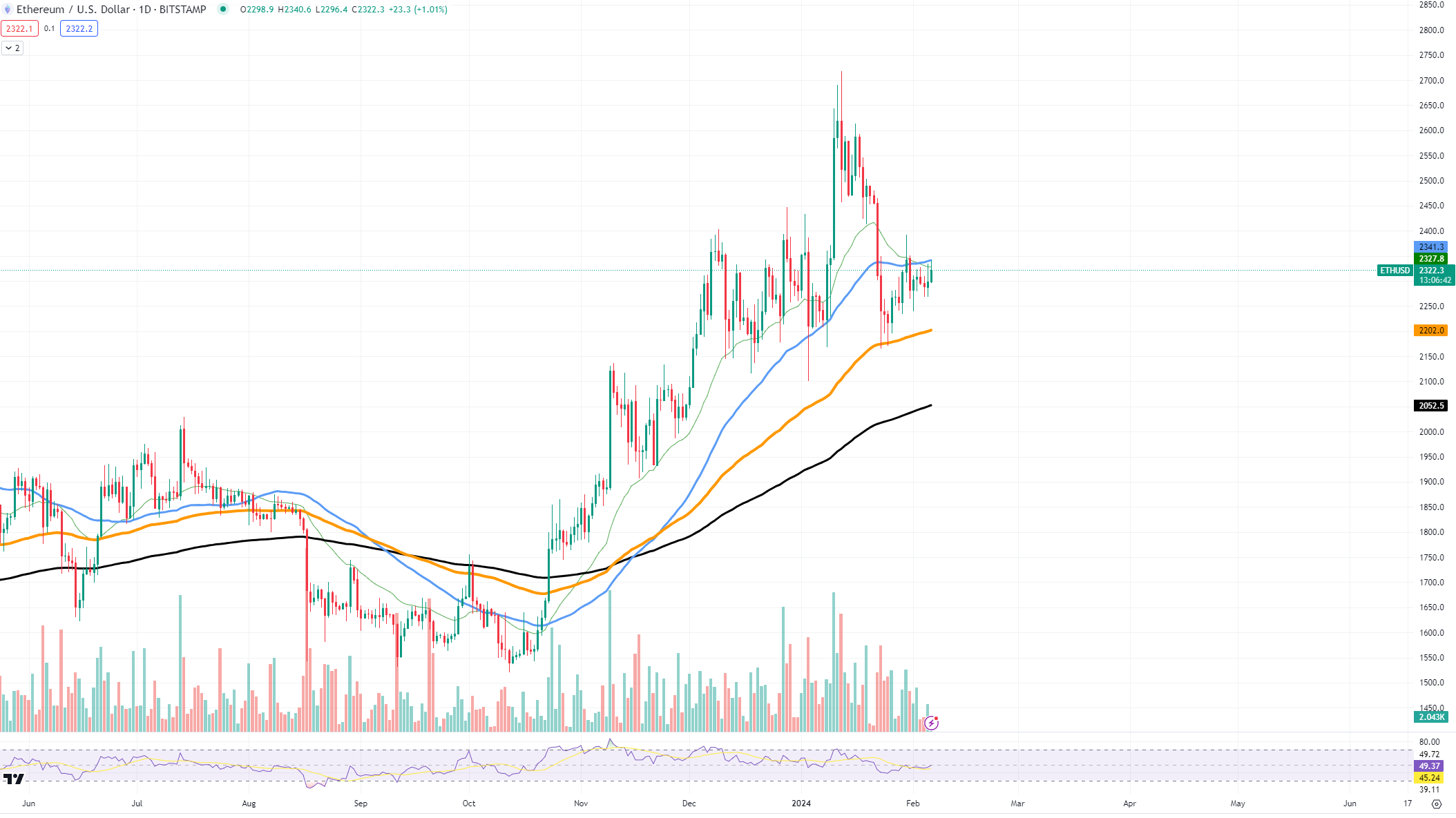[ad_1]
The Ethereum network has recently observed a noteworthy supply drop, entering further into the deflation area. This week’s data showcases a supply change with a decrease of 393.60 ETH, leading to a total supply of 120,179,017 ETH. This decline does not immediately impact the asset’s price; however, a sustained deflationary trend could signal a positive development for Ethereum’s market performance.
Deflation in a cryptocurrency like Ethereum signifies that the number of coins being burned — taken out of circulation — is exceeding the number being created or issued. Such a supply contraction, especially when continuous, can be beneficial for an asset’s valuation, as it may enhance scarcity and potential demand over time.

Analyzing the current Ethereum chart, we observe that ETH has been maintaining a steady posture above the 100-day EMA (orange line), a significant indicator of long-term market sentiment. This positive position, juxtaposed with the recent supply deflation, provides a solid foundation for a potential growth scenario.
The deflationary mechanism introduced by Ethereum’s EIP-1559 is expected to play a vital role in the asset’s price dynamics in the long-term future. As the network reduces its overall supply, each ETH token’s relative value could increase if demand remains constant or grows. We might also consider this as a precursor to a new short-term era for Ethereum, where increased network activity causes severe deflation.
The recent outage of the Solana network adds an intriguing layer to the narrative. Historically, when alternative layer-1 networks face technical difficulties, Ethereum often benefits as the leading smart contract platform. The current downtime in the Solana ecosystem may redirect attention and activity back to Ethereum, potentially strengthening ETH’s market position.
[ad_2]

